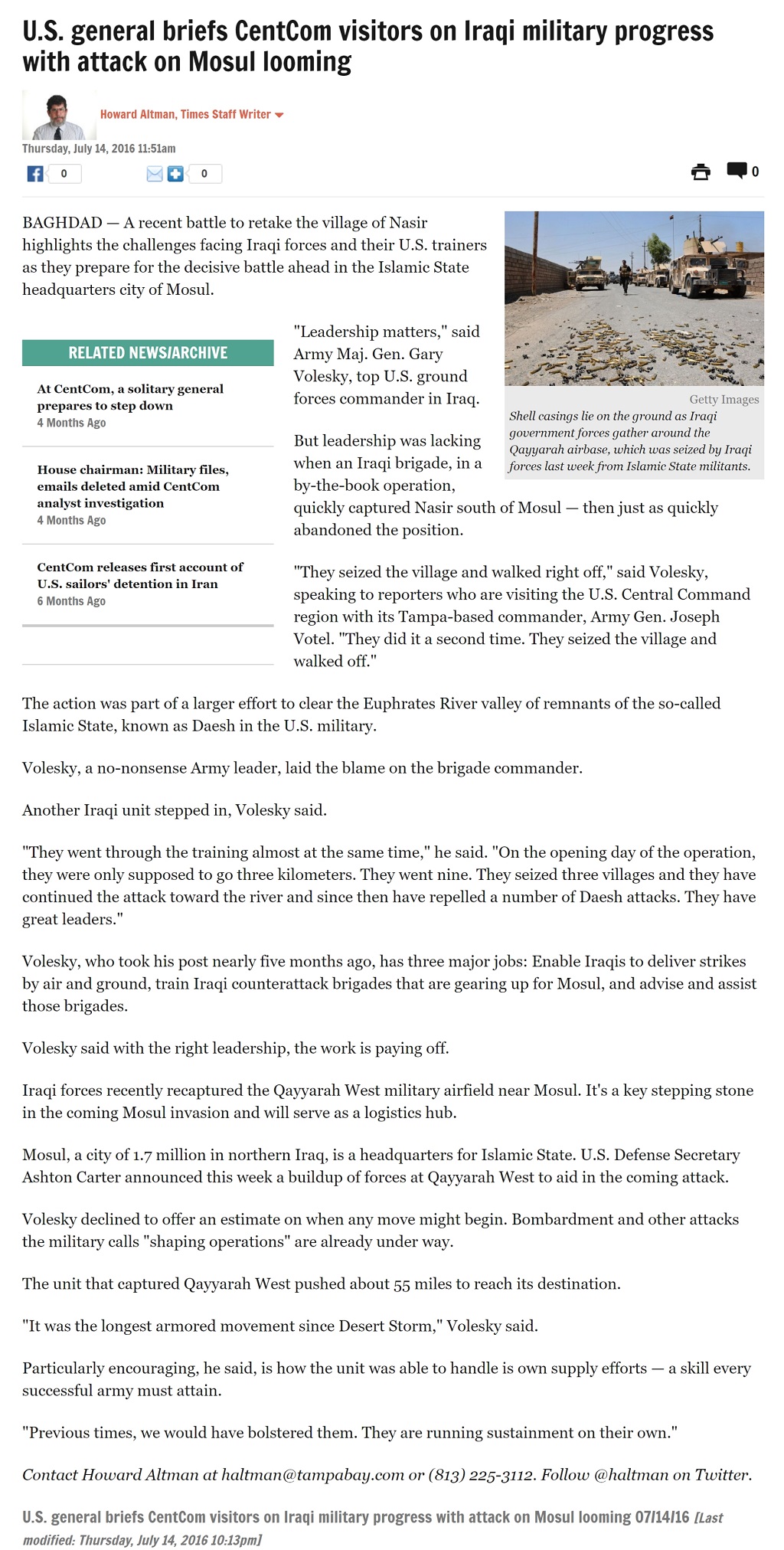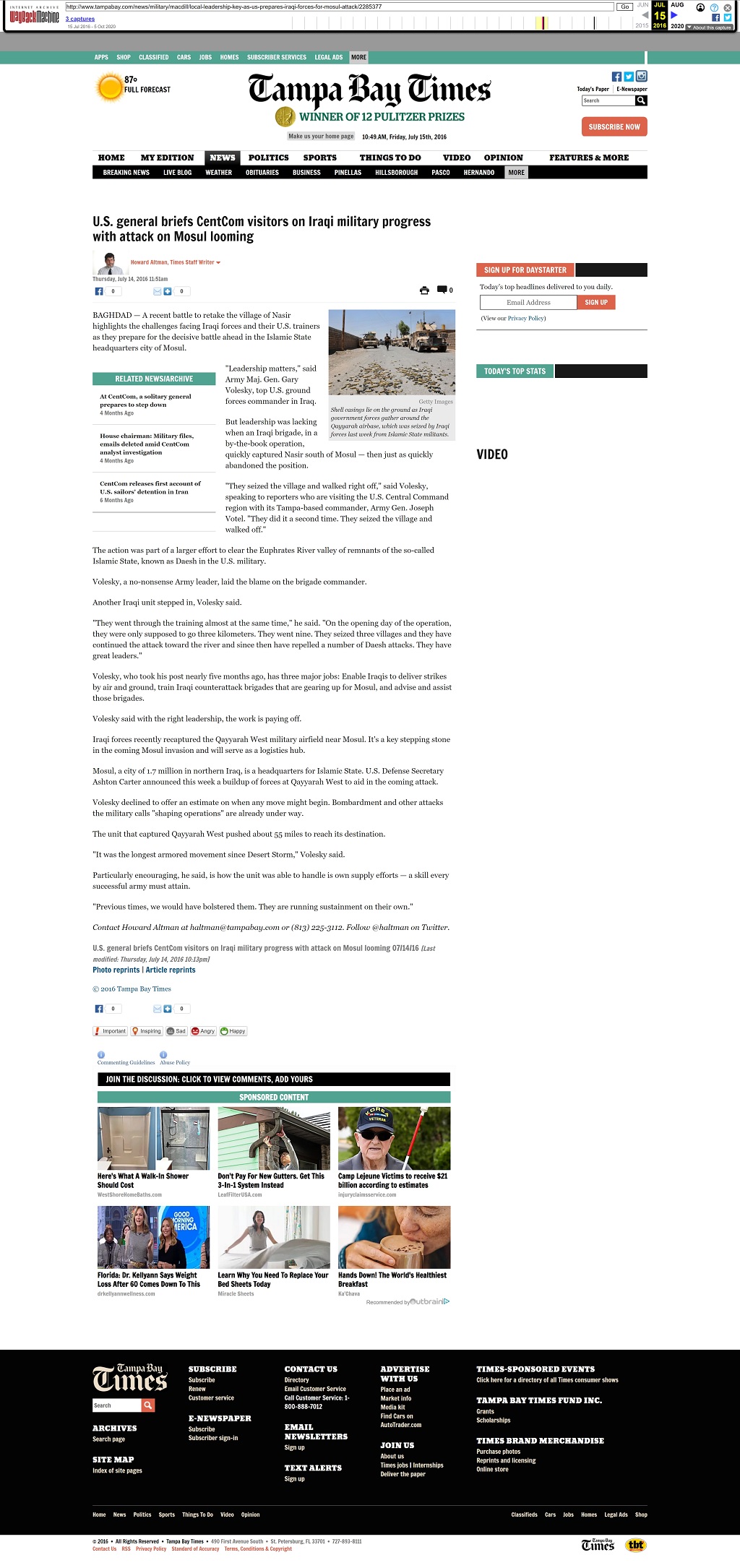
News / Military
By Howard Altman / Tampa Bay Times / July 14, 2016
PHOTO: Shell casings lie on the ground as Iraqi government forces gather around the Qayyarah airbase, which was seized by Iraqi forces last week from Islamic State militants. (Getty images)
BAGHDAD — A recent battle to retake the village of Nasir highlights the challenges facing Iraqi forces and their U.S. trainers as they prepare for the decisive battle ahead in the Islamic State headquarters city of Mosul.
“Leadership matters,” said Army Maj. Gen. Gary Volesky, top U.S. ground forces commander in Iraq.
But leadership was lacking when an Iraqi brigade, in a by-the-book operation, quickly captured Nasir south of Mosul — then just as quickly abandoned the position.
“They seized the village and walked right off,” said Volesky, speaking to reporters who are visiting the U.S. Central Command region with its Tampa-based commander, Army Gen. Joseph Votel. “They did it a second time. They seized the village and walked off.”
The action was part of a larger effort to clear the Euphrates River valley of remnants of the so-called Islamic State, known as Daesh in the U.S. military.
Volesky, a no-nonsense Army leader, laid the blame on the brigade commander.
Another Iraqi unit stepped in, Volesky said.
“They went through the training almost at the same time,” he said. “On the opening day of the operation, they were only supposed to go three kilometers. They went nine. They seized three villages and they have continued the attack toward the river and since then have repelled a number of Daesh attacks. They have great leaders.”
Volesky, who took his post nearly five months ago, has three major jobs: Enable Iraqis to deliver strikes by air and ground, train Iraqi counterattack brigades that are gearing up for Mosul, and advise and assist those brigades.
Volesky said with the right leadership, the work is paying off.
Iraqi forces recently recaptured the Qayyarah West military airfield near Mosul. It’s a key stepping stone in the coming Mosul invasion and will serve as a logistics hub.
Mosul, a city of 1.7 million in northern Iraq, is a headquarters for Islamic State. U.S. Defense Secretary Ashton Carter announced this week a buildup of forces at Qayyarah West to aid in the coming attack.
Volesky declined to offer an estimate on when any move might begin. Bombardment and other attacks the military calls “shaping operations” are already under way.
The unit that captured Qayyarah West pushed about 55 miles to reach its destination.
“It was the longest armored movement since Desert Storm,” Volesky said.
Particularly encouraging, he said, is how the unit was able to handle is own supply efforts — a skill every successful army must attain.
“Previous times, we would have bolstered them. They are running sustainment on their own.”
Wayback image

